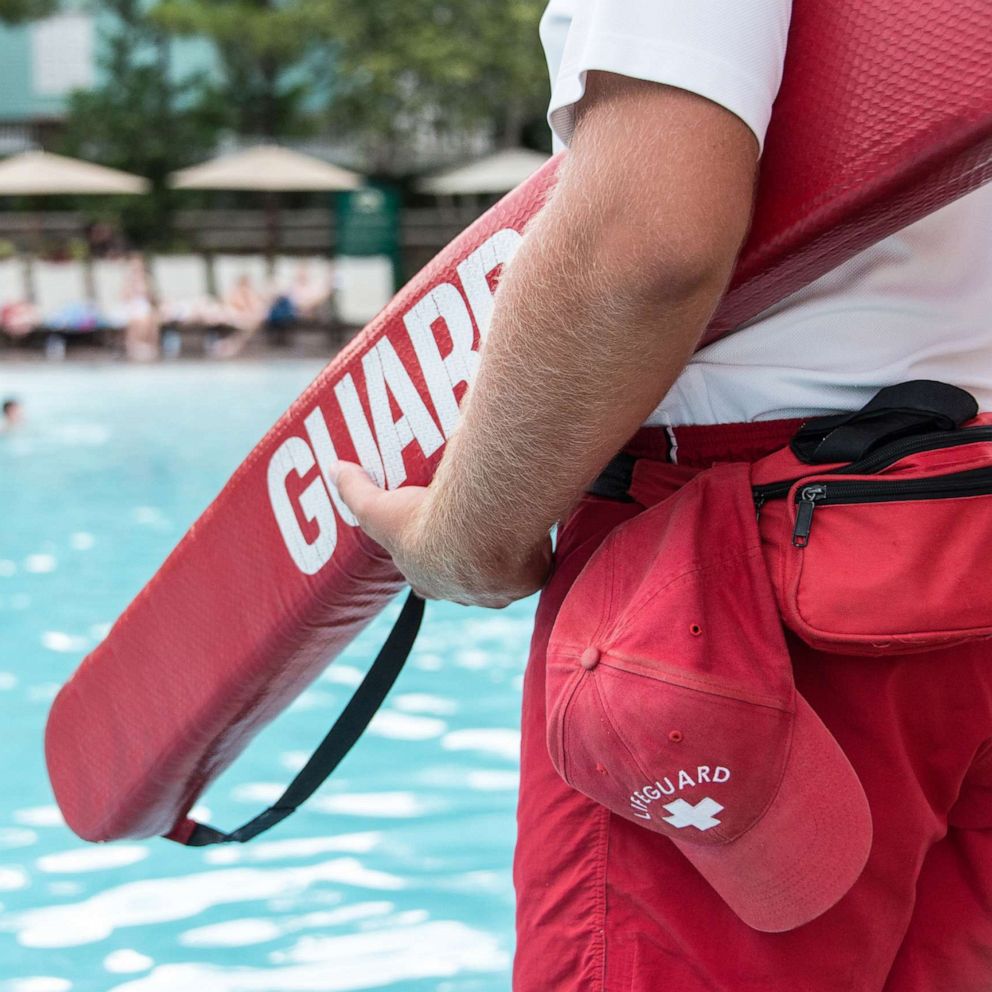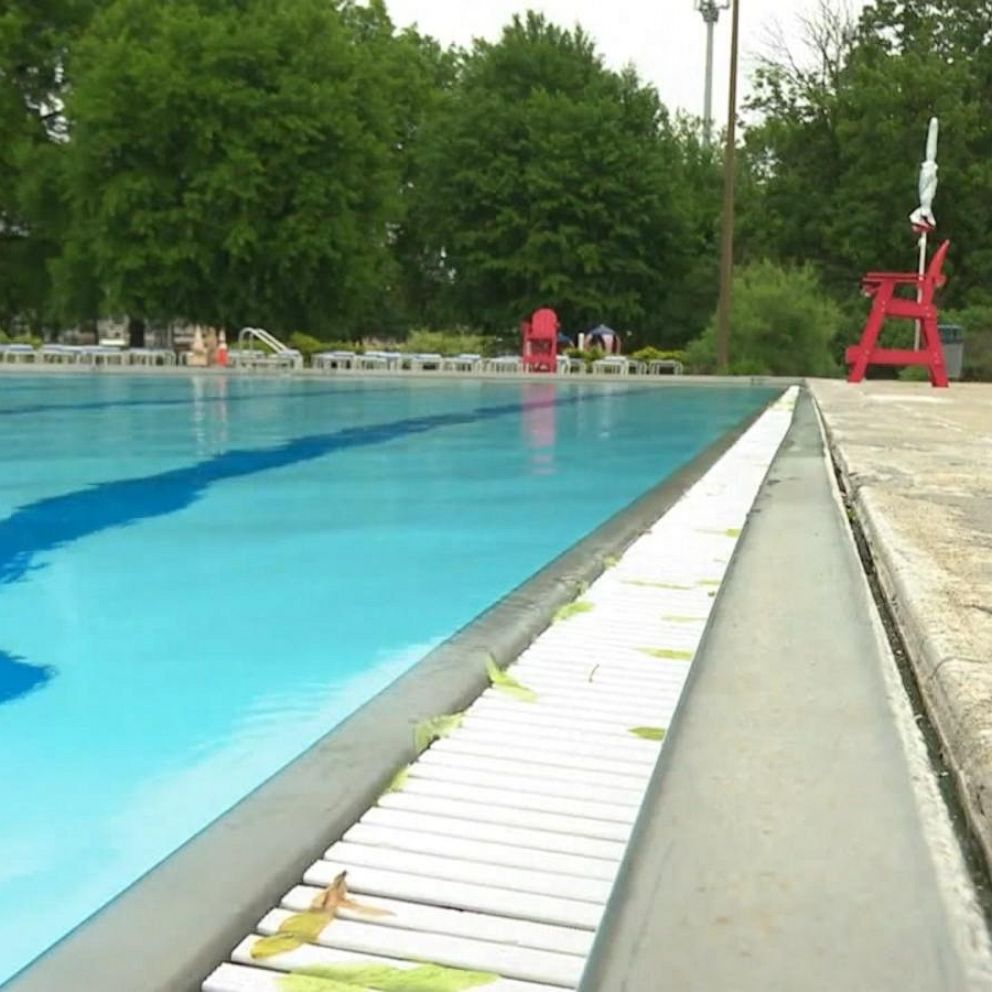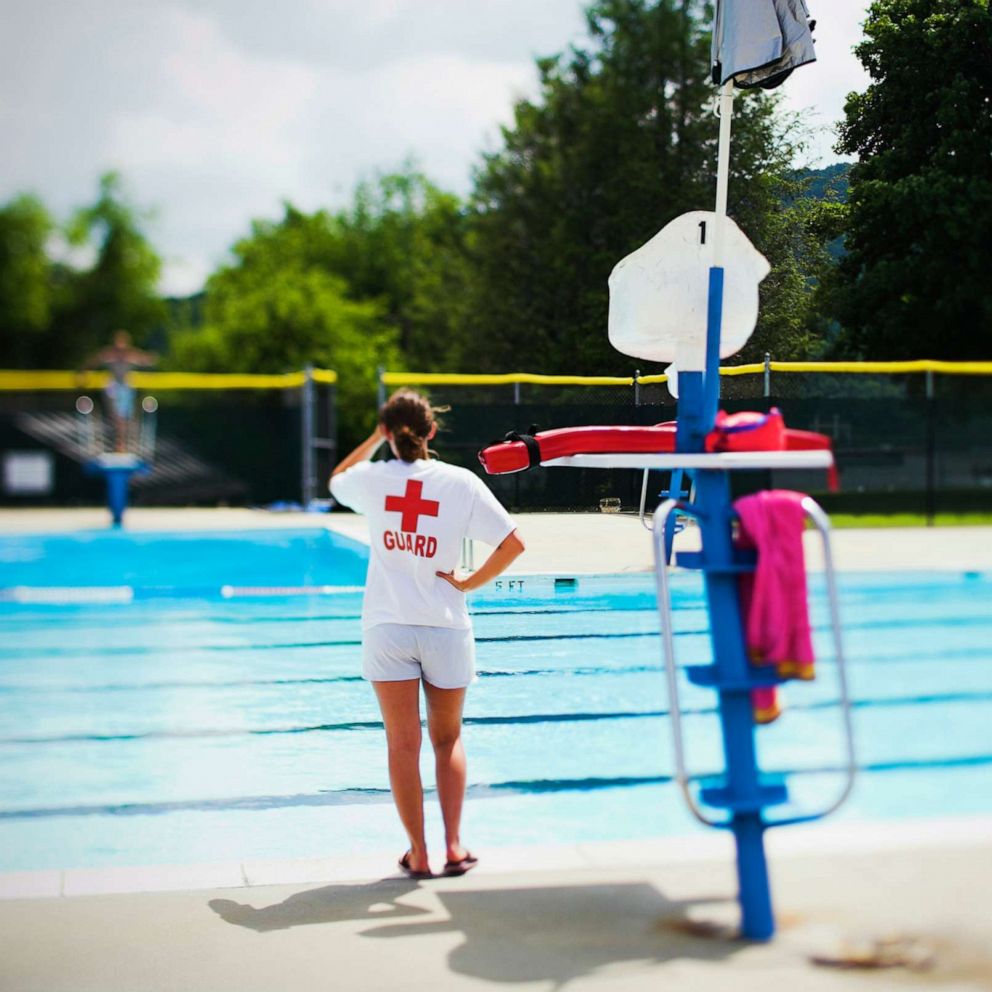Buffalo won't open outdoor pools this summer amid national lifeguard shortage
Experts share what to keep in mind before heading to the beach or pool.
Countless families and kids are heading to the beach or pool this summer amid a national lifeguard shortage.
In Buffalo, New York, officials announced this week that the city would not open any of its nine outdoor pools for the summer season due to a lack of certified lifeguards.
"We realize this decision will disappoint the hundreds of youngsters and adults who enjoy spending summer hours at our outdoor swimming pools, but the bottom line is we don’t have the number of lifeguards required to keep our residents safe," Mayor Byron Brown said in a statement, adding that the city would waive fees at their two indoor pools in the interim and offer free lifeguard training this summer.
Meanwhile, in Indianapolis, the local parks department announced the city would only open five out of its 17 pools this season after its lifeguard staff fell by about 50%.
The dearth of trained swimmers isn't a new problem. For the last two decades, the U.S. has seen fewer lifeguards enter the field or get recertified for each season, according to Bernard J. Fisher II, the director of health and safety at the American Lifeguard Association. In an effort to alleviate the ongoing issue, there have been calls to raise the pay for lifeguards, offer retention bonuses, free training, and recruit more candidates, such as senior citizens and retirees.
But the coronavirus pandemic has worsened the situation, Fisher told "Good Morning America."
"The pandemic pretty much has wiped the slate clean of lifeguards available to hire. So the pool of lifeguards are just not out there because we've lost two years of training new additional lifeguards and also recertifying lifeguards that have been certified in the past and needed to renew at some point during the pandemic the first year and last year," Fisher said. "This year, we've never seen it this bad."
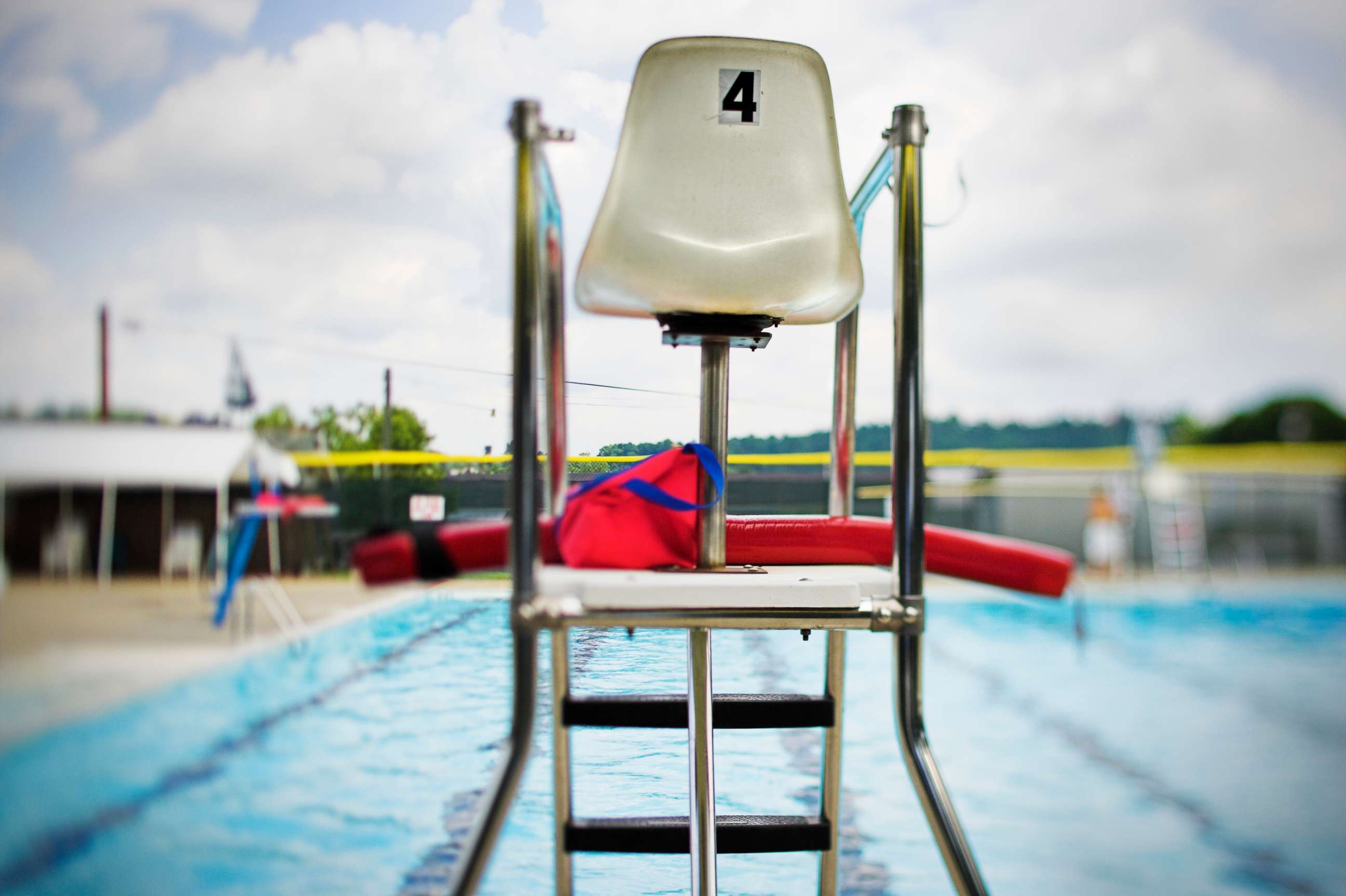
Other organizations, like the American Red Cross and the United States Lifesaving Association, which also offer lifeguard training, are similarly concerned by the significant lack of lifeguards this summer.
"Currently, staff shortages go beyond the aquatic industry and the increased competition for workers has made it difficult for aquatic facilities to hire and retain staff," Jenelle Eli, a senior director of media relations for the American Red Cross, told "GMA" in an emailed statement.
"Facilities have experienced staffing and training disruptions due to the COVID-19 pandemic for the past 2 years. Now, many facilities are faced with recruiting, hiring and training 100% of the staff required to operate safely -- including lifeguards, Water Safety Instructors and managers. Several organizations are offering hiring bonuses and increased pay rates to help entice people to work for them."
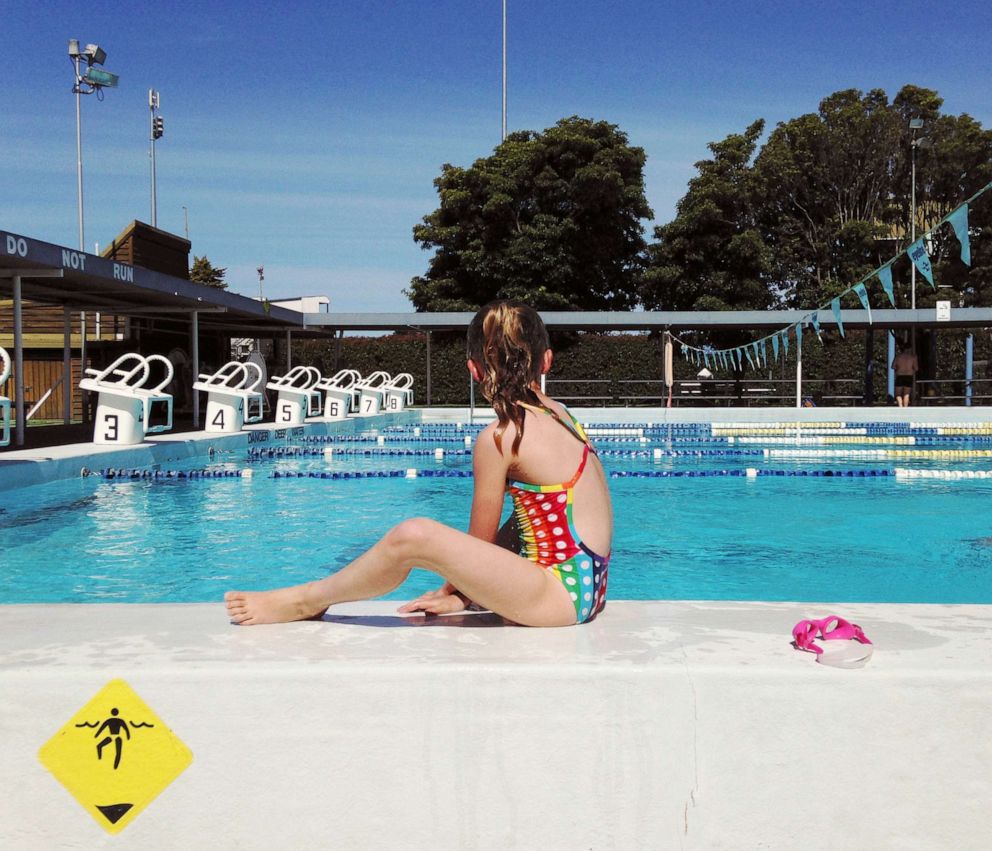
But with summer in full swing and a second heat wave hitting the Midwest this week, what can parents and caregivers do if they wish to bring their children out for a day of water-filled fun?
Thomas G. Gill, vice president of the United States Lifesaving Association, recommends that families plan ahead.
"From day one, when you're planning that beach vacation, we want everybody to go to usla.org. Look for the certified beaches that we have all around the country, up and down the East and West Coast, the Gulf Coast, the Great Lakes, and find those places where there are going to be lifeguards because quite honestly, you're not taking your family of four or five to someplace where they don't have police or fire or EMS and you shouldn't be taking them to the beach if they don't have lifeguards."
Water safety tips
Fisher, from the American Lifeguard Association, added that parents can't let their guard down when it comes to children near the water and recommends that adults follow these tips:
- Arm’s length supervision: Make sure children are close to you at all times.
- Wear a U.S. Coast Guard-approved life jacket: This is especially important for novice swimmers.
- Designate a water watcher: Choose somebody in your group to pay attention to kids, someone who won't talk on the phone, text, or read.
"These things will help minimize the drownings," Fisher said.
Karen Cohn, the co-founder of The ZAC Foundation, a nonprofit that promotes water safety, previously shared water safety tips with "GMA" as well.
Cohn recommended the following:
- Talk to children to make sure they don't play in water areas without adult supervision. Make sure kids never go into the water without permission.
- If kids are wearing life jackets and or "puddle jumpers" in the water, talk to them first about what it feels like to be in the water without a life jacket on.
- Remove pool toys when not in use as children can be attracted to them.
- Empty the water from backyard inflatable pools and buckets when not in use.
- Ensure there is four-sided fencing around backyard pools with self-closing, self-latching gates.
- Be sure there are alarms on doors and windows leading out to the pool area.
- Check flag warnings for water conditions and avoid getting into the water if conditions are unsafe.
- Create a water safety plan for you and your family, just like you would for a fire safety plan.
- Keep a phone nearby in case someone needs to call 911.
- Become your kids' first line of defense and learn how to perform CPR.
"I think at the end of the day, [beaches are] going to reduce staffing times, they're going to maybe not staff as many chairs during the summer as they might. But again, that's a case-by-case basis," Gill added.
"That really does put the onus on the consumer, on the beach goer, the patrons that are going to the beach to [ask themselves], 'Where are the lifeguards? When are they going to be up there?' And when you get there, if they're not in the lifeguard stand, don't go in the water. Wait till those lifeguards are up."
"We've proven that having a lifeguard on that stand and swimming in front of lifeguards, it's so much more safe for everyone that's out there," he added.
